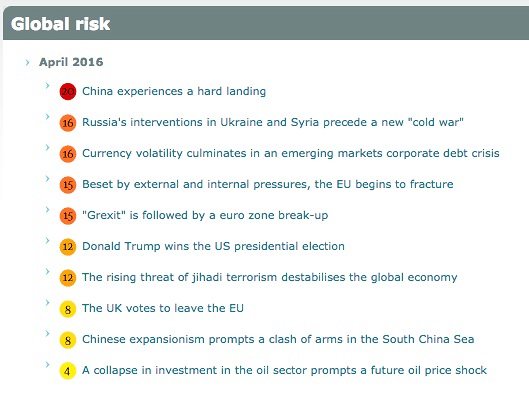Donald Trump has been a controversial and scandalous figure ever since his announcement to join the race for the Republican nomination and subsequently run for the presidential election back in June 2015.
In his presidential announcement speech, he has revealed a hostility towards Mexico and China, referring to undocumented Mexican immigrants as rapists and drug dealers, and boasting about beating China in business deals “all the time”.
Regrettably, this wasn’t the end of his controversial dialog. In summary, he called for a prohibition on all Muslims entering the United States; advocated killing the families of jihadist terrorists; described on China and Japan as “currency manipulators”; and repeated a negative narrative that American soldiers in the Philippines in the early 1900’s dipped their ammunition in pigs’ blood before executing Muslim terrorists.
This is by no means an exhaustive list. In a recent rally he said that he would like to punch a protester in the face and, even more recently, warming to his theme, he upset the already besieged people of Belgium, many of whom had lost their families and friends, by describing its capital, Brussels as “a hellhole”.
Despite the controversy and lacklustre support in the early stages of the Republican nomination race, Donald Trump has gained significant momentum and looks increasingly likely to secure the Republican nomination.
Many governments, corporations and influential individuals around the world have expressed grave concerns about Mr. Trump’s destabilising influence and potential presidency. Specifically, the Economist Intelligence Unit (EIU), a renowned global economic and geopolitical analysis firm, placed Donald Trump’s presidency sixth on their latest list of global threats, on a par with the rising threat of jihadi terrorism.

Donald Trump has been extremely provocative and far from conservative on many of the social and economic issues, which has raised concerns globally. According to the latest EIU report, “his militaristic tendencies and controversial remarks towards the Middle East would be a potent recruitment tool for jihadi groups, increasing their threat both within the region and beyond”.
Illustrative of this, Donald Trump was featured in the propaganda video praising ISIS’s attack on Brussels and calling for more killings in Europe. Robert Powell, global risk briefing manager at EIU, also adds that “One of [Trump’s] extreme positions has been to invade Syria to wipe out ISIS”, citing estimates that a year-long incursion into Syria of 20,000-30,000 U.S. troops could cost $25 billion (£17.6 billion).
Moreover, Trump has advocated plans to seize Syria’s oil fields and refineries, which finance ISIS, and then selling the oil to pay for a U.S. military campaign. However, according to Powell, at current oil prices, this strategy would only net about $500 million (£351 million), at most.
Donald Trump, throughout his campaign, has failed to set forth a comprehensive and clear-cut domestic or foreign policy. The only unambiguous policy Mr. Trump advanced was the construction of a wall along the United States’ southern border, paid for by Mexico which makes no practical sense.
It is unclear as to how he would react and govern the country if faced with serious issues such as disputes in the South China Sea, a terrorist attack on American soil or another financial crisis.
Moreover, the statements made by the President of the United States can have serious economic consequences, both domestically and internationally. Considering the extent of the market’s reaction to only two or three words from the Federal Reserve Chairman, this may not prove to be an overstatement of the impact that an ill-chosen statement by Mr Trump, as President of the USA, might have and the blunt way of speaking that has made him so popular among Republican voter could be disastrous if he is in the white House.






